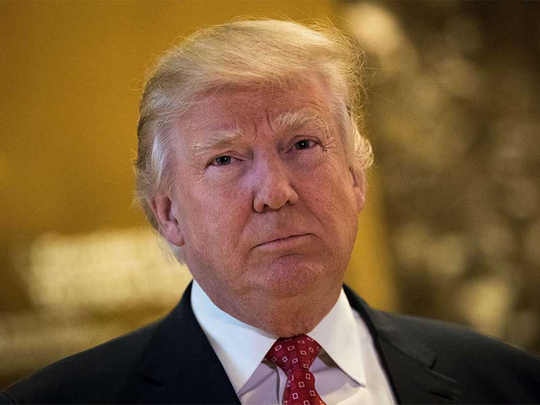
Vienna: Iran and major powers on Tuesday took stock of their 2015 nuclear deal, with Donald Trump’s imminent inauguration and the death of a moderate former Iranian president raising worries about its future.
Trump, who takes office on January 20, has vowed to dismantle the “disastrous” accord, which saw Iran drastically reduce its atomic activities in exchange for the lifting of painful sanctions.
Tuesday’s meeting in Vienna — the city where the hard-fought deal was struck in July 2015 — brought together senior diplomats from Iran and the United States, Russia, China, Britain, France and Germany.
It is the fourth such gathering to review progress implementing the accord since it came into force in January 2016 and was requested by Iran in December after US sanctions legislation was renewed for a decade.
US restrictions under the Iran Sanctions Act targeting mostly Tehran’s oil and gas sectors remain suspended but the Islamic Republic still saw the move as a violation of the nuclear deal.
There is also disappointment in Iran that many of the economic benefits that President Hassan Rouhani, 68, promised would come from the deal have fallen short.
This could hurt Rouhani’s chances of winning a second term in elections in May.
Iran has been able to ramp up its vital oil exports to pre-sanctions levels and signed deals to splurge billions of dollars on dozens of new aircraft made by Airbus and Boeing.
However Iran’s ability to do more business with the outside world is being hampered by US sanctions related to non-nuclear issues such as “terrorism” and missiles remaining in place.
Fearful of falling foul of these and being slapped with hefty fines, this has made foreign banks reluctant to facilitate major transactions with Iranian firms.
All bets could be off in any case if Trump tears up the agreement, one of outgoing President Barack Obama’s signature foreign policy achievements.
Like many fellow Republicans, Trump is deeply suspicious of Iran and the 70-year-old looks set to be a close ally of Israeli Prime Minister Benjamin Netanyahu.
Netanyahu, whose country is widely assumed to have nuclear weapons itself, fiercely opposes the nuclear deal with Iran, saying it will fail to prevent its arch foe getting the bomb.
Trump has not publicly discussed the subject in detail since his election victory in November, but his pick to head the CIA, Mike Pompeo, has made his opinions clear.
“I look forward to rolling back this disastrous deal with the world’s largest state sponsor of terrorism,” Pompeo tweeted the day before his nomination.
However, unilaterally ripping up the agreement might not be so easy, not least because the deal was endorsed by Russia, with whom Trump wants to improve relations, and the rest of the UN Security Council.
Russia’s envoy in Vienna to the UN, Vladimir Voronkov, appeared laid-back on Thursday.
“The election campaign is one thing, but a new stage when he enters office is another,” he told the Russian news agency TASS.
“Then he [Trump] will get an opportunity to have another look at the document, to the practice of its implementation to find his position on it in the future,” he said.
A Western diplomat involved in Tuesday’s meeting said he did not expect any Trump representatives to attend this time.
“It would be surprising for someone not yet in place to take part,” the envoy told AFP on condition of anonymity.












